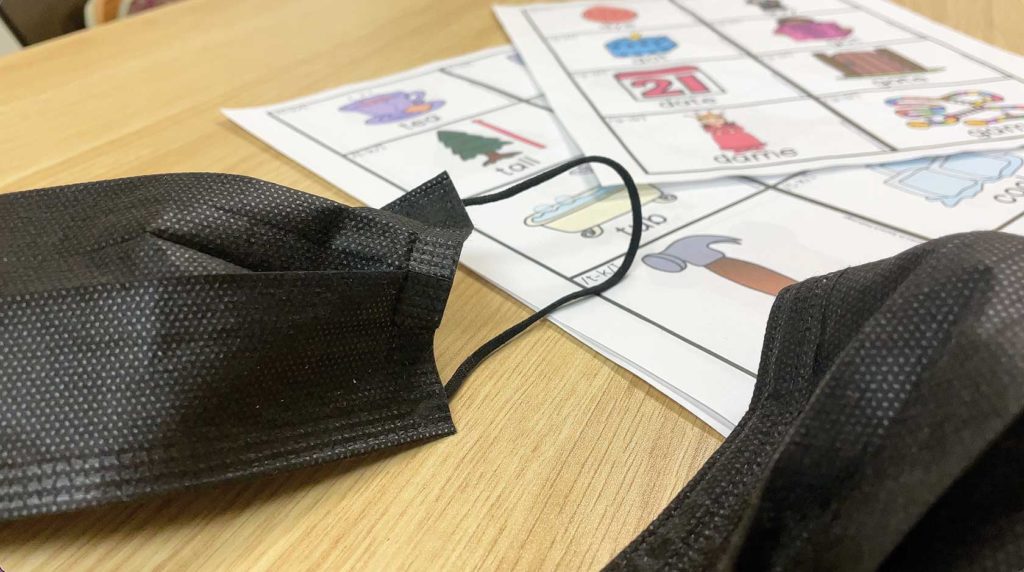
As somewhat normalcy returns to cities across the U.S., caregivers are noticing the pandemic’s impediment to child development. Experts are observing that children coming into speech-language pathology clinics are showing symptoms of literacy delays, language delays and timidity.
“When the pandemic started, people didn’t want to be social,” said Chandler Dotson, a speech-language pathologist, or SLP, based in California with eight years of experience.
Children who have been isolated at home since the beginning of the pandemic, during the most important years of development, have had issues assimilating back into social settings.
Small children born during the pandemic, colloquially dubbed ‘COVID babies,’ “were only in the house with their parents, and their parents didn’t really require them to say a lot of things that the world would require of them,” Dotson said.
Children today are much more reserved than they used to be, Dotson added, attributing this change to a lack of diverse social interaction. Dotson said her patients express a newfound hesitancy towards playing with other children or exploring toys.
“They’re shy. They’re almost timid and scared to a certain extent,” said Micheala Fryer, another SLP based in Alabama.
Natalie King, a graduate medical sciences student at Boston University, has noticed these changes in her 6-year-old nephew.
“When he sneezes, he sneezes into the air and doesn’t cover his nose with his elbow because he is so used to sneezing with a mask on and not having to cover his face,” King said.
Children who have grown up during the pandemic have adopted life with coronavirus guidelines as their version of normal. This can hinder their ability to understand and reciprocate common social cues.
Dotson said that communication with others could become complicated without being exposed to facial expressions due to masks. Her patients would be confused when she made a sarcastic comment or joke.
“It was almost like they can’t tell if you’re kidding,” Dotson said.
Fryer noted that the pandemic caused some kids to develop an increased dependency on adults.
“When we had to do virtual therapy, a lot of my kids were not able to participate independently,” Fryer said. “They had to be accompanied by a parent, grandparent, caregiver of some sort just to help them participate in a therapy session.”
She explained that this dependency is not completely negative. This increased engagement can allow caregivers to become more knowledgeable about their child’s condition and wellbeing.
Adrian Rzepnick, an SLP and clinical director currently based in Boston with more than 40 years of experience, said an unintended effect of the pandemic is that many ‘COVID babies’ have not been exposed to prevalent germs, making them more prone to catching and spreading colds and flu viruses.
“They have zero natural immunity due to restricted environments and masks,” Rzepnick said. “ I think we will have community-acquired infections for the next one to two years.”
Despite many initial concerns, both experts and caregivers have observed some positive results in mask-wearing.
“Because [my nephew] had to wear a mask for so long, he doesn’t suck his fingers anymore,” King said.
Body language is another area in which pandemic children are far more advanced than pre-pandemic children. Because they compensate for a face hidden behind a mask, pandemic children have learned to become more expressive in their communication and body language.
“The students who were focused on reading mouths were forced to learn to read the entire face, body, cheeks, posture and body orientation,” Rzepnick said.
Younger children have adjusted surprisingly well to all the pandemic demands, but older children have had a more difficult time transitioning.
From having frequent social interaction with other children at school and playgrounds, school-age kids have had to make numerous compensations and lifestyle adjustments. Because of these difficult transitions, Fryer said that progress in her patients has been slower throughout the pandemic.
“I would go as far to say that school-age kids were hit the hardest. It’s hard to say if it was a lack of progress, or if it’s just slower progress being made because they’re having to overcome so many other things going on in their lives,” Fryer said.
With coronavirus cases declining in the U.S., children will have to adjust and shed the masks that protocols that they have adapted to. Their inherent naivety allows them to adapt to their environment and sometimes even find joy in these changes.
When King’s nephew was in kindergarten, she said he actually enjoyed wearing the face shields because he “looked like Darth Vader.”
The children themselves may be unaware of how the pandemic has affected them and will continue to affect them, but speech-language pathologists are thinking about a post-pandemic future with both hope and possible concern.
Rzepnick said she expects to see children in the future with “literacy and language delays that may take up to two to three years to meet age level expectations.”
However, she believes that social skills will be able to develop naturally for most children, noting that some kids with underlying disorders “may be behind due to behavioral delays, comprehending reinforcement and lack of group therapy opportunities with peers.”
Dotson recommends daycare as early as possible to see the explosion of language and social pragmatics possible in young children.
These effects can also be reversed with some purposeful attention from the adults in these children’s lives.
“I’ve been telling this to all of the caregivers, all the parents I work with: just talk to your child. Just talk to them,” Fryer said.
This article was originally published in The Scope, a project of the Northeastern University School of Journalism.






